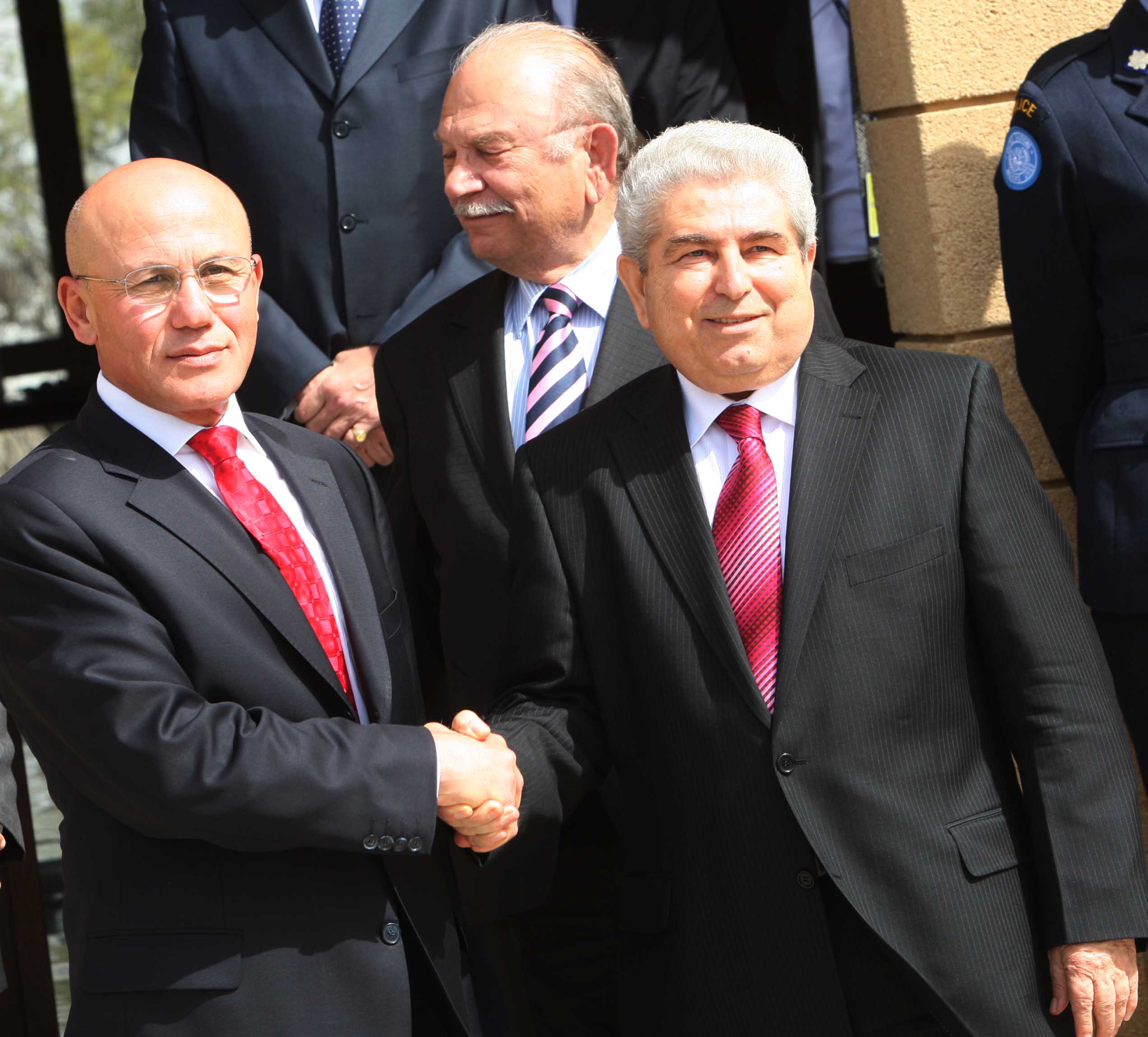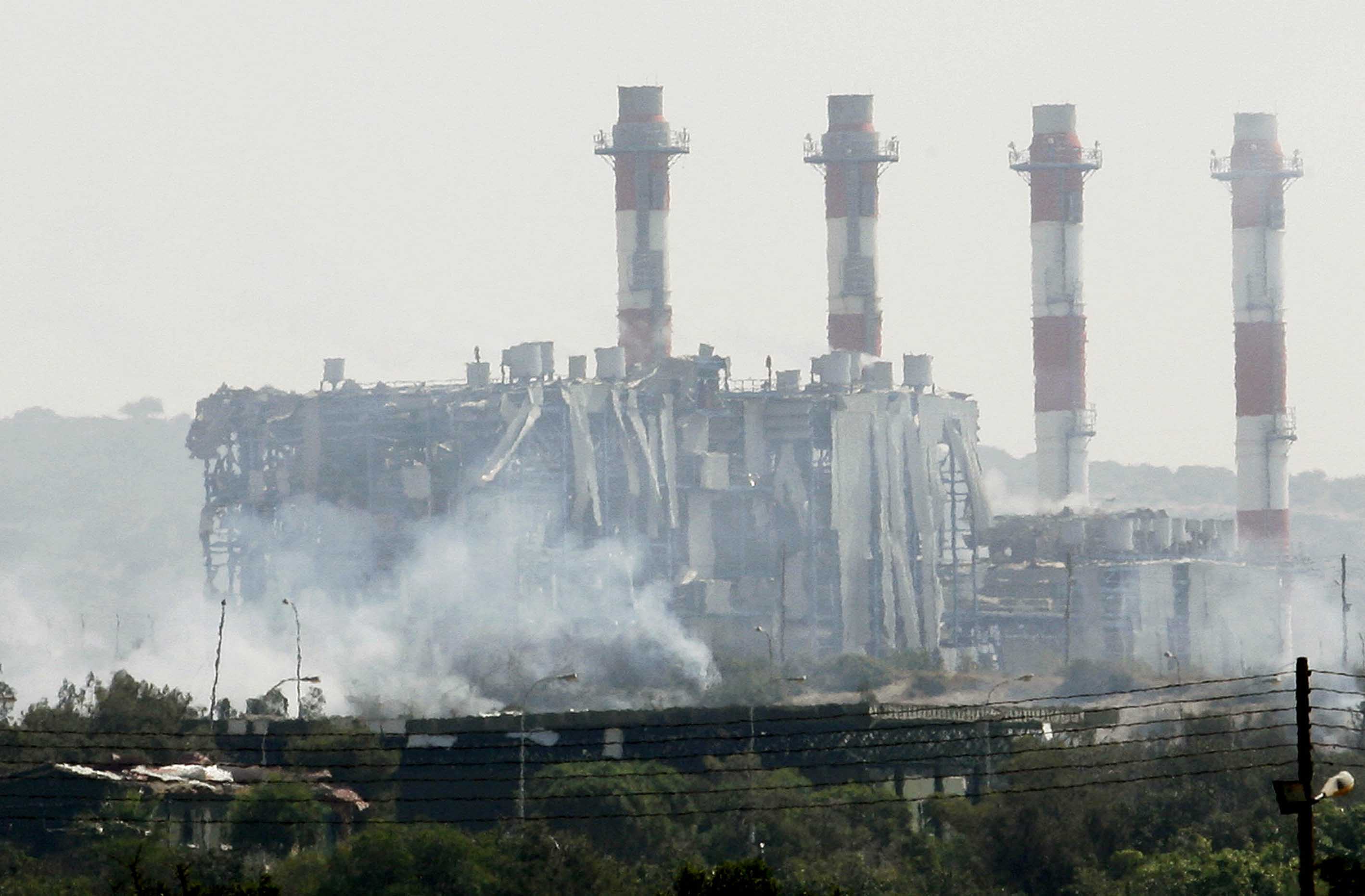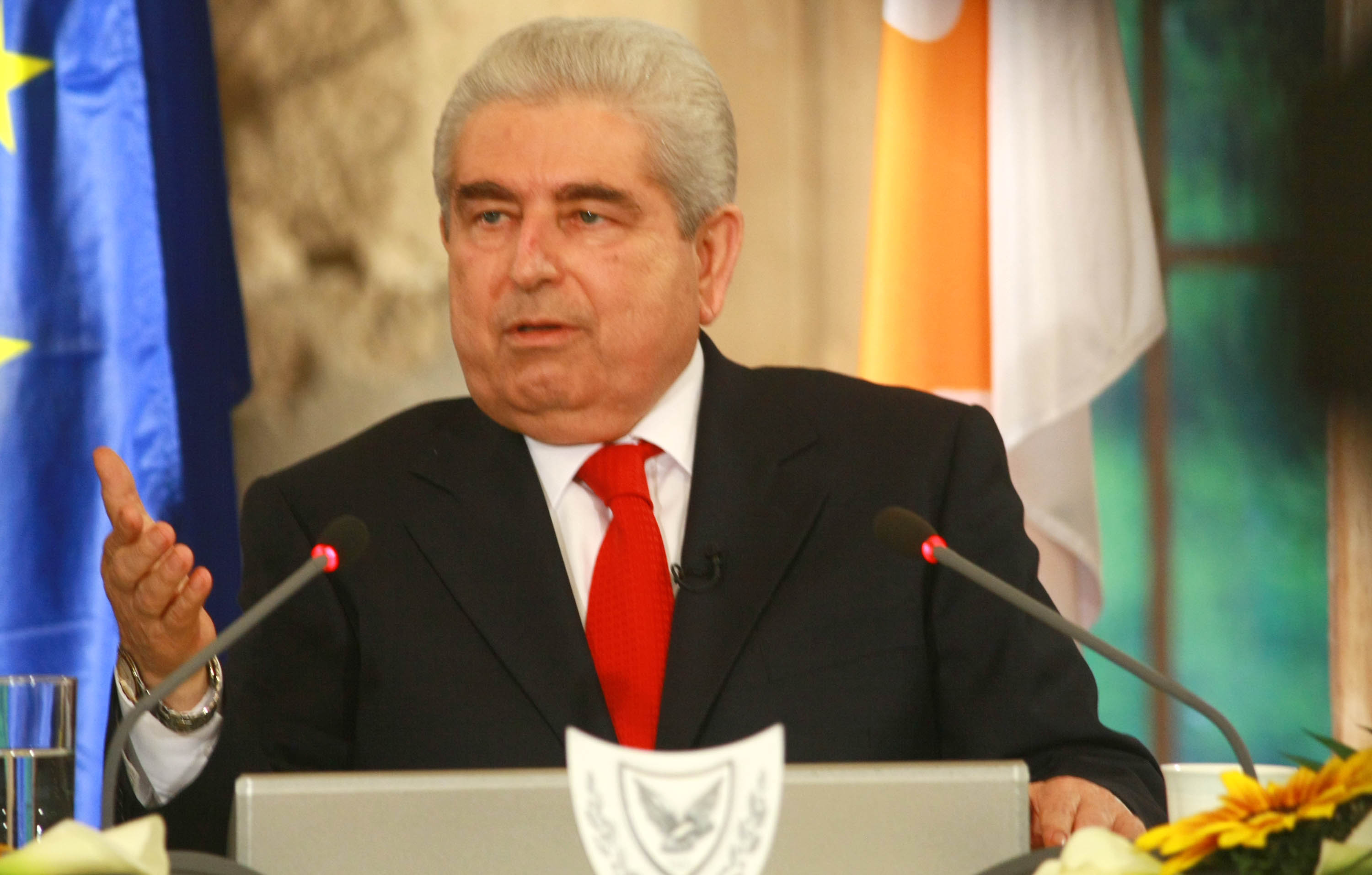A thin-skinned politician who seemingly longed to be popular and respected, Demetris Christofias was ill-equipped to cope with the criticism heaped upon him during the second half of his ill-fated presidency.
He was, however, reliably consistent in refusing to accept any blame for the crises that inflicted the island on his watch. These included the “Mari disaster”, when a large cache of munitions stored near the island’s main power station killed 13 people in 2011, and a financial meltdown that brought Cyprus to the brink of bankruptcy.
Nor did he make significant progress towards reuniting the island – despite winning the presidency in 2008 by casting himself as the Greek Cypriot politician best positioned to do so.
In May 2012, he announced he would not seek re-election, saying that his decision fulfilled an earlier promise not to run for a second term if peace talks were not close to an accord. By then he knew that voters would never return him to office — and Akel clearly viewed him as a liability. He was the first incumbent president not to seek re-election.
A builder’s son who studied history in Soviet era Moscow, Christofias had led the communist party, Akel, since 1988. The party had a strong record of reaching out to the Turkish Cypriots and he was an old trade union friend of their moderate leader, Mehmet Ali Talat.
Akel had bitterly disappointed the Turkish Cypriots in 2004 when it backed President Tassos Papadopoulos’ rejection of the Annan Plan, which meant that in effect the Greek Cypriots alone entered the EU in May that year.

Christofias insisted that Akel’s “no” was different from the “resounding no” demanded – and achieved – by the hardline Papadopoulos. Christofias argued that he wanted a “soft no”, designed to “cement a yes” at a later stage, on terms more acceptable to the Greek Cypriots.
His critics believe that he put his desire for Akel to remain in government (as Papadopoulos’ coalition partner) above his professed commitment to a settlement.
Even so, there were high hopes for a Cyprus settlement when Christofias ousted Papadopoulos in presidential elections in February 2008: the latter, rather than Akel, had been blamed for the “no” vote in 2004.
Despite Akel’s strength in parliament, it was the first time the party had fielded its own candidate.
Traditionally, the communist party had played the role of king-maker: its support helped secure the presidency for Spyros Kyprianou in 1983, George Vassiliou in 1988 and for Papadopoulos in 2003.
After casting his vote, Christofias declared: “I want to send a message of friendship to ordinary Turkish Cypriots, a message of a common fight to reunite our homeland so we are in charge of our own affairs without foreign intervention.”
I want to send a message of friendship to ordinary Turkish Cypriots, a message of a common fight to reunite our homeland so we are in charge of our own affairs without foreign intervention
By now talk of reviving the Annan Plan in any form was taboo: it had been rejected by 76 per cent of Greek Cypriots and thoroughly demonised by Papadopoulos. Moreover, Diko, the party Papadopoulos had once led, was a coalition partner in the new Christofias government, along with Edek, the socialist party with a hardline stance on a Cyprus settlement.
Christofias promptly agreed with Talat to re-open Ledra Street (in Nicosia’s old town), whose closure had for decades been a symbol of the island’s division, and the two leaders began substantive talks for an overall settlement in September 2008.
Over the following year they met 41 times, making enough progress for the UN to try to accelerate the process. ‘Presidential’ elections were looming in northern Cyprus and there was concern Talat could lose to Dervis Eroglu, a hardliner.
Eroglu was tapping discontent with an economic downturn and disappointment that the EU did not meet a pledge to help ease the Turkish Cypriots out of their isolation following their endorsement of the Annan Plan.
However, Christofias rejected any talk of “asphyxiating timeframes” or UN arbitration, a stance backed by Russia. Even so, intensive settlement talks in January 2010, which focused on the issue of governance, made significant progress. Encouraged by what became known as the ‘Christofias – Talat convergences’, the UN secretary-general, Ban Ki-Moon visited Cyprus at the end of January, hoping to push the negotiations to an end-game in March before the April 2010 Turkish Cypriot elections.
Christofias, however, refused to have the convergences codified and published and Talat was ousted by Eroglu.
The Greek Cypriots soon had other pressing problems to deal with. In the summer of 2011 the island suffered its worst peacetime military accident when a large cache of confiscated Syria-bound, Iranian munitions exploded at a naval base at Mari on the southern coast.
The huge blast killed 13 people and crippled a power plant that generated more than half of Cyprus’ electricity needs, triggering street protests and calls for Christofias’ resignation. An independent Cypriot inquiry concluded that Christofias’ “negligence and carelessness” were primarily to blame for the disaster.

Cyprus had reluctantly seized the explosives from a Cypriot-flagged vessel in February 2009 after the United Nations sanctions committee said the consignment contravened a ban on Iranian arms shipments.
Both Tehran and Damascus had pressured the island not to seize the munitions and, once it had, not to destroy them. Christofias had tried to placate Damascus and Tehran while simultaneously attempting to meet the demands of the United States and other Western powers. It was a risky diplomatic game which left Cyprus with no room to manoeuvre, the inquiry found.
For two-and-a-half years, 98 containers of Iranian gunpowder and nitroglycerine were left exposed to wide temperature swings in an open field just 150 yards from Cyprus’ main power station. Christofias vehemently denied any personal responsibility.
The Mari disaster led to increased electricity costs which deepened growing economic problems. Government expenditure had risen in 2009 despite falling revenues and was only cut in 2011 when Cyprus entered a recession and Christofias’ handing of the economic crisis was causing concern in Brussels.
Although Christofias had better contacts with the Kremlin than the White House and had once joked he was the “red sheep” of Europe, the EU had largely overlooked his communist background when he was elected. It preferred to take encouragement from his avowed intent to resolve the Cyprus problem and from Akel’s reputation for pragmatism.
But there was unease among other EU members when Christofias secured a €2.5bn loan from Moscow in December 2011. Two months earlier Christofias had consented to a Greek debt write-down that wiped out €4.5bn in Greek government bonds held by Cypriot banks. His government spent the loan on regular expenditure rather than using it to safeguard the banking sector.
Give us this loan and I guarantee you that over the next 50 years, Cypriots will be blessing Russia, no matter who will be president of the republic
The following year Christofias was back in Moscow to plead for a €5bn loan. Belatedly, he had also approached Brussels for financial assistance. But he hoped that another injection of Kremlin funds would mean he could avoid the economic reforms, privatisations and austerity measures demanded by the EU and IMF in return for a bailout.
It was left to his successor, President Nicos Anastasiades, to clinch the unpopular €10bn bailout deal with the European Commission, the IMF and the European Central Bank just weeks after he came to power in February 2013.
In a candid December 2016 interview with Greece’s Sky TV, Christofias volunteered rare criticism of President Putin for spurning his “persistent and repeated” requests for a loan of up to €7bn. He revealed that he told the Russian president: “Give us this loan and I guarantee you that over the next 50 years, Cypriots will be blessing Russia, no matter who will be president of the republic.”
In a poll conducted shortly before the end of his five years in office, voters deemed Christofias the island’s worst president since the Republic of Cyprus was founded in 1960.
